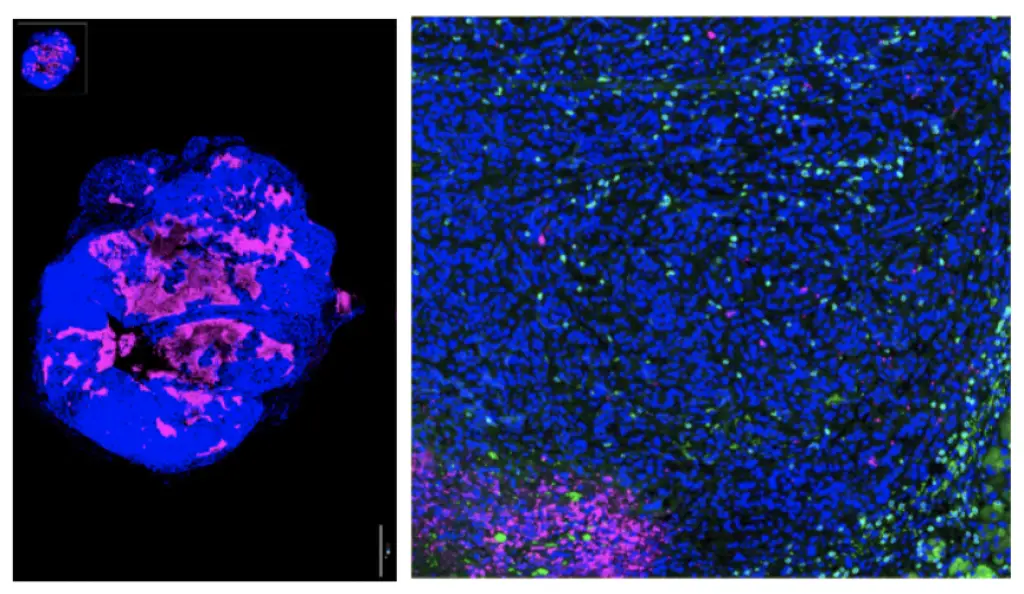
LA JOLLA, CA—Immunologist Benjamin Schmiedel, Ph.D., has been appointed to a tenure-track Assistant Professor position at La Jolla Institute for Immunology (LJI). The new faculty position recognizes Schmiedel’s exceptional leadership and research as a postdoctoral researcher and Research Assistant Professor at LJI.
Schmiedel’s laboratory studies how individual genetic differences shape the immune system. His lab is investigating the genetic mechanisms that impact immune cell function and has helped shed light on specific genes and immune cell types associated with diseases such as inflammatory bowel disease (IBD), type 1 diabetes, and asthma.
“Ben’s dual expertise in genomics and immunology has brought us closer to understanding why some people are more prone to developing autoimmune disease, cancers, and other conditions,” says LJI Professor, President & CEO Erica Ollmann Saphire, Ph.D.
Each study from the Schmiedel Lab offers new clues to disease development—and provides opportunities to intervene and halt disease progression. “We are interested in identifying therapeutic targets for future drugs, and new markers that help with diagnosis and prognosis, especially for diseases that are still understudied and hard to treat,” says Schmiedel.
On a mission to understand key genes
Schmiedel earned his Ph.D. at the Hospital of the Eberhard Karls University of Tübingen, in Germany, where he studied the functional role of immune cells in cancer and developed new strategies to boost anti-tumor immunity. In 2012, he came to LJI to train as a postdoctoral fellow in the lab of LJI William K. Bowes Distinguished Professor Pandurangan Vijayanand, Ph.D., MD.
Schmiedel’s work in the Vijayanand Lab showed how genetic variation plays a role in many autoimmune diseases and even viral infections. In a 2021 Nature Communications paper, Schmiedel and his colleagues reported that many genetic variants associated with the severity of COVID-19 affected different immune cells. This study provided an in-depth look at how certain genes in specialized immune cells cause dysfunctional immune reactions and fuel severe cases of COVID-19.
While in the Vijayanand Lab, Schmiedel also played a key role in creating the Database of Immune Cell Epigenomics (DICE), a free, online resource that helps scientists uncover previously unknown links between genetic variants and immune cell function. Schmiedel says DICE has helped scientists around the world to uncover new genes that are involved in human diseases in many unexpected ways.
“By analyzing the available data in detail, we are now realizing that there is a lot of overlap between the genetic mechanisms that drive different diseases. For example, genetic variants that affect immune cells involved in IBD could also be relevant in driving the risk for asthma,” says Schmiedel. “Identifying these genetic effects helps us better understand the role of immune cells in disease, and this research could potentially even allow us to develop drugs that work for multiple diseases.”
As an LJI faculty member, Schmiedel will continue to expand DICE and work closely with long-time colleagues at LJI, including Vijayanand and LJI Professor Bjoern Peters, Ph.D.
“There are so many different flavors of scientific research, and different perspectives, at LJI,” says Schmiedel. “Scientists here study all facets of immunology, and that makes collaboration really easy.”



